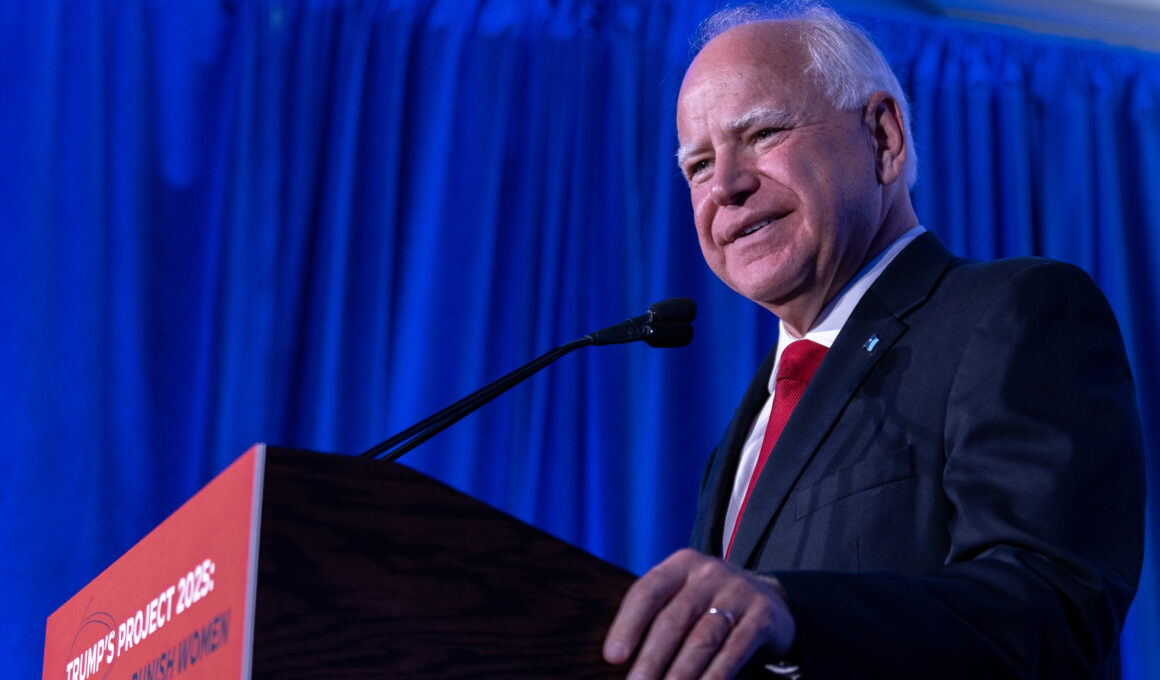Minnesota Governor Tim Walz’s health care background and history fighting for lower drug prices for Medicare beneficiaries could help Vice President Kamala Harris as she tries to win over voters ahead of the November presidential election.
Walz, who was announced as Harris’ running mate on Tuesday, is also a trusted face for veterans and teachers, as he spent decades in the Army National Guard and worked as a public school teacher before taking office.
While Harris and former President Donald Trump are being evaluated on their policies on everything from the economy to foreign policy and abortion, voters have also been judging their perspectives on Social Security and Medicare. Both social safety net programs are facing a funding crisis that could mean seniors run out of full benefits by as soon as the mid-2030s.
Political leaders have proposed many potential options to save Medicare’s funding, but so far, nothing has been officially approved to keep the government health care program available to seniors who need it the most.
In Minnesota, Walz has emerged as a leader on the issue of health care. He has protected abortion access, repealing rules like a 24-hour waiting period and parental consent requirement. He also is a supporter for gender-affirming care for transgender people and quickly implemented a statewide shutdown and social distancing rules when the COVID-19 pandemic hit.
As a member of Congress, Walz was also vocal in his support for Medicare drug price negotiations. He called for increased research on cannabis and looked to extend Veterans Affairs’ studies around toxin Agent Orange’s effects on Americans.
Walz also looked out for diabetic Minnesotans when he led the charge for capped insulin prices, with Minnesota now in an agreement with pharma company Eli Lilly to cap insulin prices for at least five years.
“From lowering prescription drug costs to helping Minnesotans access affordable health insurance, we are proud of the work we’ve done to make high-quality health care affordable and accessible for Minnesotans,” Walz previously said.
Walz has also previously described health care as a Minnesotan value and human right.
“What Minnesotans want from their health care is simple,” Walz said during his 2019 inaugural speech. “They don’t want to get sick in the first place. But if they do, they want care at a price they can afford and at a location close to home.”
When it comes to the federal rules around Medicare’s funding, it’s not clear exactly what policies the Harris-Walz administration would enact, but based on past statements, the duo would likely attempt to preserve funding and increase taxes on higher earners to solve the upcoming funding issues.
“Both Harris and Walz have discussed millionaires and billionaires not ‘paying their fair share’ and this playing a part in the coming budgetary shortfalls these programs and others are going to encounter,” Alex Beene, a financial literacy instructor for the University of Tennessee at Martin, told Newsweek.
“It’s difficult to know if those potential tax increases will occur, as it will depend on what type of Congress a Harris-Walz administration would have to contend with.”
As a two-term governor, Walz voted to protect abortion access and legalized marijuana across the state. He also sought more restrictive gun laws and focused on more expansive paid family leave and school meals.
In the weeks since Harris announced her candidacy, Walz has also pushed back on Trump and his running mate, Ohio Senator JD Vance.
“What I know is that people like JD Vance know nothing about small-town America,” Walz said on MSNBC‘s Morning Joe late last month. “My town had 400 people, 24 kids in my graduating class, 12 were cousins. And he gets it all wrong.
“It’s not about hate. It’s not about collapsing in. The golden rule there is mind your own damn business.”
He added that Republican policies “destroyed rural America.”
“They divided us. They’re in our exam rooms. They’re telling us what books to read,” Walz said.
Walz has also been vocal in his support for Harris as the next president.
“What I think what Kamala Harris knows is bringing people together around the shared values, strong public schools, strong labor unions that create the middle class, health care that’s affordable and accessible, those are the things,” Walz said during the interview.
Michael Ryan, a finance expert and founder of michaelryanmoney.com, said Walz is likely to double down on protecting Medicare as vice president.
Ryan also said payroll tax adjustments for higher earners could be expected under a Harris-Walz administration.
“You might need to brace for higher contributions,” Ryan told Newsweek. “It’s a trade-off—paying more now to ensure the system’s there when you need it.”
That could lead to more stability among seniors when it comes to their monthly benefits.
“It’s a balancing act—keeping the programs funded without overburdening middle-class workers,” Ryan said.
Newsweek reached out to Walz for comment on his Medicare policies via email.







